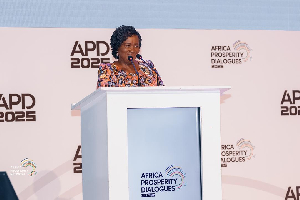Research shows that Conflict, or more specifically, interpersonal conflict, is a fact of life, and particularly of organisational life. This is because it often emerges more when people are stressed, for example, when there are changes on the horizon, or when everybody is under pressure because of a pending deadline in school for example essays and dissertations etc.
This makes it more significant for schools to have discussions in a scenario of how children could cope with stress.
In many African schools this area is unfortunately untouched by teachers. Never the less, pupils and students are expected to naturally cope of the topic. I would disagree with this style of approach. How could this be redressing this balance?
Would it be fair to propose that all pupils go on a citizenship programme before they reach 12 years? African school must aim for a more holistic approach. By reacting in this way we are offering opportunities for our future society to grasp the need of a having healthy broad-minded and have role-plays in introducing the knowledge of conflict resolution.
The approach could be shared in all regional education departments to ensure that conflict resolution become part of school curriculum. When the youth have better knowledge about conflict resolution hopefully they would cascade that knowledge to feed into their communities. Some people resolve conflict through fighting due to lack of in-depth knowledge about the subject.
Having a good knowledge about Conflict resolution helps in strategic partnership in all schools. Pupils who have better understanding of conflict resolution are able to build on a relationship that can weather unanticipated problems. Using conflict resolution could be marketed to all institutions because it attributes any community to forming a meaningful partnership and is motivated primarily to gain a competitive advantage over others in terms of better standards and productivity.
What qualities are needed in a successful school are as follows
Tolerance, respect, understanding other people’s point of views, love, listening to others, accepting others, appreciation of contributions from others, the use of the right approach/ techniques is challenging views and many more.
If conflict resolution is eventually integrated into school curriculum, it would help in improve the quality of the communications and improve better behaviour management when in public. It would also help in problem solving techniques in schools and better alignment with parents, teachers and head teachers and others.
Conclusions.
A knowledge of Conflict resolution forms part of our individual decision making in schools. Our children need to be exposed to this issue at a very young age to master the technique our children to realise the dynamics of conflict resolution.
This is only food for thought.
.
Opinions of Saturday, 3 October 2015
Columnist: Bolus, Mercy Adede


















